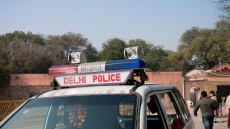Plastic pollution in Andaman and Nicobar Islands is a growing concern. Islands in particular face a serious problem of plastic pollution. People living in these islands rely on most of the products shipped from mainland. The daily, weekly and monthly needs to run a family require most of the materials packed in plastics. All or most of the plastic materials entering these islands through some means are used and thrown in land or water.
Here are ten suggestions to the public and the Andaman and Nicobar Administration to avoid plastic pollution
1. Develop habit from childhood to avoid disposable plastic items
Most of the plastic items used in our daily life are once-used and thrown, like grocery bags, plastic wrappers, disposable cutlery, straws, tea cups etc,. It is possible to develop a habit within our self and younger generations to replace the disposal plastic items with reusable versions. Teach your children take own cloth bags to buy grocery items, silverware to office, etc., then it becomes a habit.
2. Carry reusable water bottles; don’t treat water as a commodity
Everyday numerous plastic bottles are tossed in trash in these Islands. Because, the tourists do not get quality drinking water other than bottled waters sold in all shops. Being in a place with a extended monsoon season with plenty of rain, it is possible for the A & N Administration to built many tanks in every panchayats to store rain water and process it for drinking. This is not new; the British have done this earlier when they occupied these islands. Nevertheless, the residents could carry a reusable water bottle in bag when they go for shopping or to any restaurant and reduce buying water bottles from shops and hotels. A & N Administration should provide drinking water with built-in-filter system with international standard in most or all the major tourist sites to reduce bottled drinking water.
3. Cook at home to avoid takeaway foods
It is healthier to cook and eat at home than eating out in various hotels for taste and variety. If you are supposed to go out to eat in a hotel or take a parcel, inform them that you don’t need any plastic cutlery and take your own food-storage containers to restaurants to take back leftovers or whole food parcel.
4. Teach businessmen and manufacturers.
The A & N Administration should advise the local restaurant owners and other businessmen about options that they can switch to for packaging, storing, and bagging items. Many companies are starting to come up with excellent low-cost replacements, such as bamboo utensils in place of plastic ones.
5. Get involved with hygiene of your area, ward or panchayats.
Everyone should involve themselves in all levels to make their area clean and plastic free. Form a group of your own friends and show interest in cleanliness of your area. Presently, although the municipal corporation has identified a place at each street to place one big plastic container or cement container in a standard distance for discarding garbage for the public and also for dumping from the collectors of municipality who collect door to door, many places where they have kept the container is not neat enough for a person to go and leave the garbage inside the boxes provided. Most of the public throw from a distance and many fall outside the bin. This makes hectic even for the cleaners who collect from each point as well as the nearby residents. The cows and dogs of each area have already started tasting the garbage and has become a routine for them. It would be better to provide a clean environment to place a container for collection in a platform, so they don’t have to walk in squashy soil in rainy season nor the garbage will mix in the swampy soil, which is difficult to clean too.
6. Initiate commercialization of natural products and avoid products with micro beads
The A & N Administration should encourage and show interest to commercialize natural products such as natural straw instead of plastic straw and supari (areca) leaf plates or banana leaf use in restaurants, which may provide livelihood to farmers and other people. On the other hand, public should strictly or try to avoid cosmetic items such as scrubs, tooth pastes etc., with plastic micro beads. Because the micro beads in the cosmetic items are very small and not much visible to us and easily through sewage they enter the ocean ecosystem.
7. Policy for ship-generated or cargo generated waste.
Specific policies should be framed for ship-generated wastes or cargo generated wastes and a charge (tax) for polluting our ocean for foreign ships should be made. In addition, there should be restrictions to take or use plastic drinking water bottles, plates, spoons etc., inside the ships during travel.
8. Develop collection schemes for used electric, electronic equipments from public
The Andaman and Nicobar Administration should open collection centre for used electric, electronic goods by the public with an incentive to avoid pollution caused by throwing of unused electric and electronic goods in the land or sea.
9. Strictly enforce fine for littering and implementing extended producer responsibility programs
Strict rules are necessary with fine for people overruling and littering in beaches, roads and all public places. In addition, the A & N Administration should provide automatic machine collector for water bottles, liquor bottles and other small once-used plastic materials that could be recycled with a regulated incentive to reduce plastic pollution and keep area clean. On the other hand extended producer responsibility program would promote ocean-friendly packaging design and reduce plastic production and use.
10. Research and development to find an alternate for plastic
With several Research Institutions, Scientists and Researchers in A & N Islands and Mainland India, ‘State or Central Government should make a call for special projects to ‘find biodegradable alternate for plastics’ and should identify suitable groups and leading scientists in the field of research that could be able to succeed. Government should encourage and fund their research fully to achieve the aim’
Globally, some scientists are attempting to make plastics safer and more sustainable. Some innovators are developing bioplastics made from plant crops to create substances that are more environmentally friendly than conventional plastics. Others are working to make truly biodegradable plastics. Some innovators are searching for ways to make recycling more efficient and they even hope to perfect a process that converts plastics back into the fossil fuels from which they were derived. However, all of them have recognized that plastics are not perfect, but the truth is, they have blend as a very important and necessary part of our life and future.
Despite growing mistrust, plastics are critical to modern life. Plastics made possible the development of computers, cell phones and most of the lifesaving advances of modern medicine. Perhaps most important, inexpensive plastics raised the standard of living and made material abundance more readily available. Without plastics many possessions that we take for granted might be out of reach for all, except the richly rich. Replacing natural materials with plastic has made many of our possessions cheaper, lighter, safer and stronger. We should clearly understand that plastics have a valuable part in our life and life style. We are living in plastic age, with its many advantages. Unfortunately, it is also an age which brings inevitable and serious problems to our earth.




